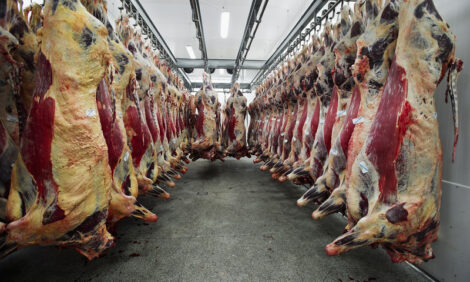



Codex Fails To Adopt Science-Based Standards
US - National Cattlemen’s Beef Association (NCBA) Chief Veterinarian Elizabeth Parker said it is extremely disappointing that the Codex Alimentarius Commission (CAC), the internationally food safety standard setting organisation under the World Trade Organisation (WTO) Sanitary and Phytosanitary (SPS) Agreement, failed to act on the adoption of science-based standards for ractopamine, a feed additive used to promote leanness in pork and beef. “The CAC was founded on science-based principles with the specific function to protect human health and ensure fair trade practices in food trade by setting food safety standards and guidance based on the best available scientific knowledge,” Ms Parker said. “The safety of ractopamine has been confirmed three times by Codex’s own panel of international scientists and is based on exhaustive scientific evidence supporting international maximum residue limits on ractopamine.”
According to Ms Parker, the United States and a broad array of Codex members in Africa, Asia, Latin America and the Pacific Islands worked to maintain the integrity of Codex by supporting the adoption of the ractopamine standard. However, she noted that for the fourth consecutive year, other members blocked the advancement of action on ractopamine due to non-science based factors.
“The countries that stayed true to the science-based Codex mandate, including the United States, should be commended,” Ms Parker said. “Unfortunately, the failure this week is broader than inaction on a specific standard. It is indicative of a growing problem. Pushed by the insistence of a few, Codex is straying outside its mission, which ultimately impacts farmers, ranchers and consumers worldwide.”
All international science-based standard setting bodies and producers are concerned with the proliferation of private standards, increased non-tariff barriers to trade and how these additionally affect food security. Ms Parker said if the foremost body, formed in 1963 solely to set international science-based food safety standards, no longer has credibility in its determinations, then it has failed and the entire world could suffer.
“The inability of Codex to keep political ideologies and scientifically unfounded interests out of its decision making process causes great concern among US cattlemen who take pride in safely producing much of the world’s high quality and affordable beef supply,” she said. “The failures this week in Geneva should be a wakeup call for all of us. There’s still time to correct it and give countries, crop and livestock producers and consumers around the world the trustworthy food safety resources we all deserve. This and future generations cannot afford continued failure.”
TheCattleSite News Desk


